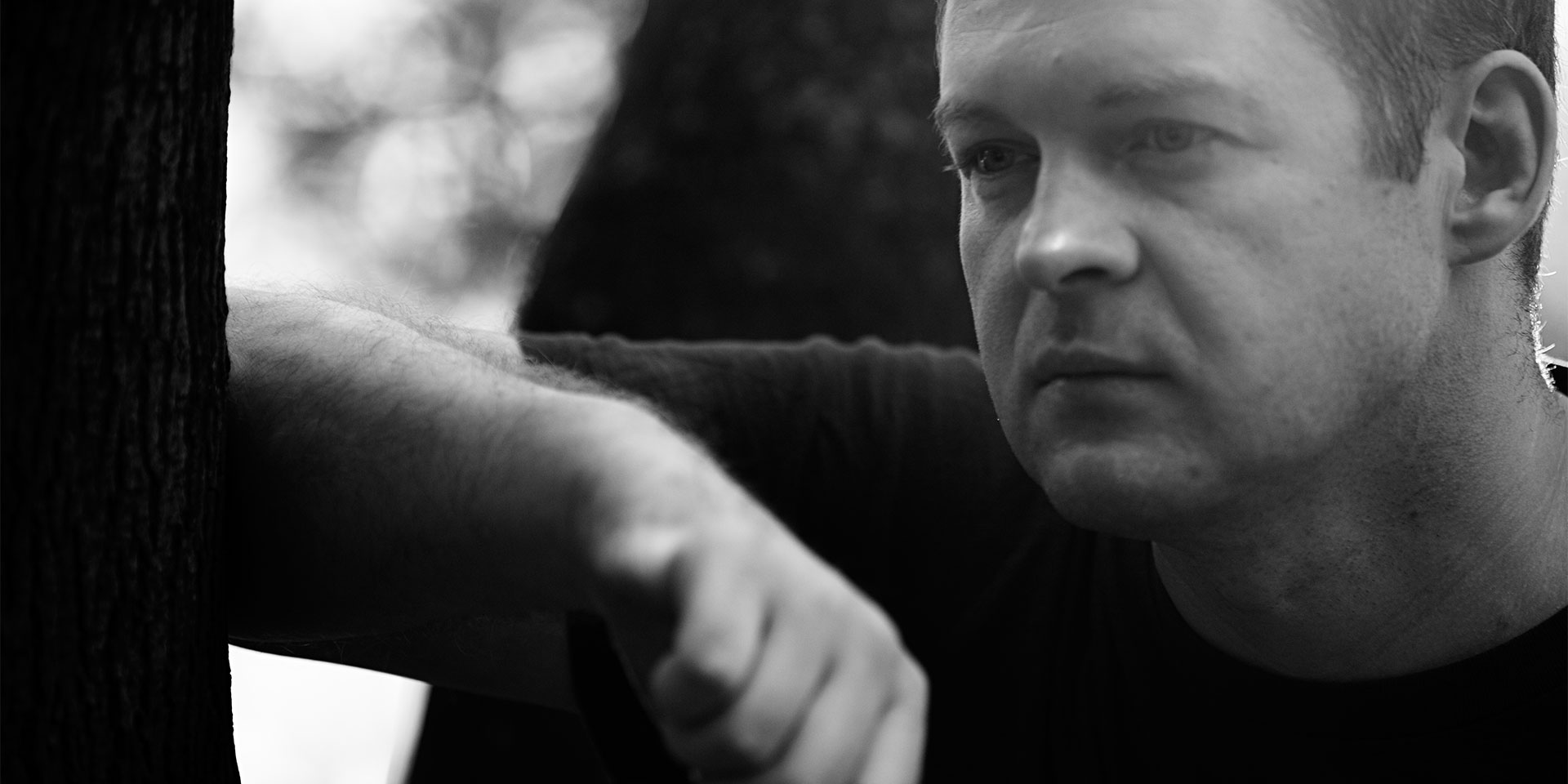The midlife crisis can cause an unpleasant shudder to those approaching this stage, a stage supposedly marked by anxiety, depression, a reassessment of life, disillusionment and the painful experience of all the internal and external changes that are taking place. But what if, despite the critical changes, midlife is a time of growth and joy rather than a succession of crises?
“I felt a disconcerting mixture of nostalgia, regret, claustrophobia, emptiness, and fear.”[1] This is how Professor Kieran Setiya describes the crisis he experienced at the age of 35, when he began to wonder if everything he was doing made sense. After all, whatever the future held, he couldn’t avoid the final stages—retirement, physical decline, and death.
Is the path to maturity and old age paved with questions and dilemmas about meaning (or meaninglessness), the irreversibility of time and the value of success? Are we struggling to adapt to the inevitable changes that come with age, trying to relive the emotions and experiences of youth through reckless actions?
The midlife crisis is a compelling subject for filmmakers and writers—characters who are happy with their lives start to slip into “madness'” halfway through their lives. Men who spend their hard-earned money, become obsessed with their appearance, buy the sports car of their dreams and start looking for partners half their age. Women who change their lifestyles, discover their vocation for sport, increasingly turn to cosmetic surgery and revamp their wardrobes, choosing styles and sizes more suited to their teenage daughters.
The idea of a midlife crisis is ingrained in our minds, even if these dramatic changes are more common in books and films than in reality. On the other hand, everyone seems to know someone who has “lost the plot” just when life seemed to be at its best, so some of us begin to anticipate the signs of crisis and wonder if we have the right tools to navigate the storm.
What is a midlife crisis?
The concept of a midlife crisis is a popular one, point out researchers Alexandra M. Freund and Johannes O. Ritter in a study that reviews the main lines of research on this stage of life. Data from a survey conducted by the two researchers showed that 92% of respondents believed in the existence of a midlife crisis, and 71% knew someone who was going through one. The most likely age to experience a midlife crisis, according to respondents, was 47.5 years.
Midlife is defined in the literature as starting at age 40 and extending to age 60, but the boundaries of this stage remain vague. Beyond chronological age, this stage is defined by specific events and challenges, although there is no consensus among researchers. While some argue that it is characterised by increased responsibilities (both parents and children need financial support at this stage), declining health and physical fitness, and a plateauing of professional and romantic relationships, other researchers see it as a period of high achievement, good occupational status, renewed marital satisfaction (after children have left home) and an expanding social network.
According to the psychologist Daniel Levinson, middle age is a rather vaguely and negatively defined transitional period in which a person is no longer young and yet not old enough to be considered old.
The concept of a midlife crisis is both old and new, writes Setiya, recalling an Egyptian text from around 2000 BC that may be the earliest description of it. The philosophy professor also suggests that Dante may have experienced a midlife crisis, at least according to lines from his famous Divine Comedy: “In the middle of the journey of our life I came to myself within a dark wood where the straight way was lost.”
The term midlife crisis was coined by the psychologist Elliott Jaques in 1965, after studying patients (mostly artists) suffering from depression or age-related anxiety. In his essay “Death and the Midlife Crisis”, Jaques wrote that at the age of 35, the individual has reached the peak of life and from that peak sees only decline and eventual death, and this prospect produces a more or less intense crisis. The midlife crisis theory has also been attributed to therapist Roger Gould or psychiatrist George Vaillant, but it only really became popular after journalist Gail Sheehy published her 1977 book Passages: Predictable Crises of Adult Life.
Economists say there is statistical evidence for the existence of a midlife crisis. “The human midlife crisis seems to be an important and under-recognized phenomenon,” conclude the authors of a working paper published by the National Bureau of Economic Research (NBER) in September 2022. After analysing the reported experiences of more than 500,000 middle-aged people in several economically developed countries, a team of economists from universities in the US, Singapore, and the UK found that people in midlife are more likely to show signs of clinical depression (including forgetfulness and sleep disturbances), become stressed at work, and feel overwhelmed by life’s problems. The researchers also found that the risk of alcohol consumption, debilitating migraines, and suicidal thoughts increases at this stage of life.
On the other hand, psychology researchers say that the midlife crisis theory is not scientifically valid and that studies show that most people get through middle age without emotional turmoil and wrenching dilemmas that knock their psychological radar off the charts.
Is the midlife crisis just a myth?
Although there are middle-aged men who are unhappy with their lives, there is no empirical evidence of a crisis that everyone experiences at this stage of life. “There is no specific time in life that predisposes you to crisis,” says psychology professor Alexandra Freund, pointing out that while people go through different types of crises, they are not age-related.
According to Susan Krauss Whitbourne, who has been teaching psychology and researching the concept of midlife crisis since the 1980s, people like the idea too much to give it up, especially as it allows them to justify any bad decisions or eccentric behaviour.
After following nearly 200 people from college into their late 50s, Whitbourne found that only a certain subset seemed to experience emotional turmoil. However, she didn’t regard them as individuals facing a midlife crisis, but rather as people who had made decisions that were bad for their relationships, careers, and wellbeing, and who had been in a state of unhappiness throughout their adult lives.
People worry unnecessarily about the midlife crisis, given that studies fail to find convincing evidence that happiness declines between early and middle adulthood, says Margie Lachman, Professor of Psychology at Brandeis University. In fact, Lachman and her colleagues believe that the evidence for the U-shaped happiness curve theory (with satisfaction peaking at ages 25 and 65 and bottoming out at age 45) is “not as robust” as its proponents make it out to be. Other studies have placed this low level of happiness at different ages, ranging from the 30s to the 70s.
Research does not show that there is a peak of negative feelings and experiences in midlife, Freund explains, pointing out that the popular belief that people suddenly realise at this stage of life that they have abandoned their youthful values and goals for more attainable ones is wrong. Personality remains stable throughout life, and the new goals are usually versions of the original goals and congruent with the person’s core values, Freund says.
While middle age is not without critical changes (menopause, andropause, parental aging and death, empty nest), not all of these changes are negative. When middle-aged adults were asked at what age they felt good enough to want to stay there for a long time, most of them said their mid-fourth decade, Freund notes. Middle age is in some ways the most satisfying, she says, explaining that by then people are “experts of themselves.” They also enjoy advantages they didn’t have in their youth—they have professional accomplishments, grown children, are still healthy and financially better off than they were as students.
The midlife crisis is therefore a Western construct fuelled by popular beliefs, according to some researchers. Mostly couched in chronological, biological, and medical terms, it has become a reality for Europeans and Americans, while other cultures don’t even have the concept of middle age, let alone the crisis that comes at this stage of life—as anthropologist Richard Shweder, author of a book exploring myths and representations of adulthood, points out.
Middle age, a time of mental wellness
How our brains function in midlife can be viewed from both a glass-half-full and a glass-half-empty perspective, but the news about cognitive health at this stage of life is rather good, says psychologist Sherry L. Willis. Co-author of a longitudinal study, Willis found that middle-aged people score better on almost every cognitive ability than they did at age 25. Verbal ability, numerical ability, reasoning ability, and verbal memory improve continuously through midlife, with the only skill that declines after age 25 being perceptual speed, the authors concluded.
“Contrary to the popular view that youth is the best time in life, the present findings suggest that the peak of emotional life may not occur until well into the seventh decade,” writes Stanford University psychologist Laura Carstensen.
Although there are variations in measurements and results between studies, most researchers have found an increase in mental wellbeing in the second half of life, points out psychiatry professor Dilip Jeste. People’s mental health tends to improve as they age (except in cases of dementia), concludes Jeste, who co-ordinated a study that looked at subjects’ mental wellbeing as well as their mental health (which includes satisfaction with life and low levels of stress, anxiety, and depression). Although some cognitive decline is inevitable, for most people it does not have a significant impact on mental wellbeing or joy of life, explains Jeste.
Middle age is not a time of crisis, at least not any more than other periods of life, concludes Nick Haslam, professor of psychology at the University of Melbourne, after reviewing several studies that have examined the issue.
A study by researcher Elaine Wethington, for example, found that the older people were, the later they reported experiencing a midlife crisis (those over 60 said they had experienced one at around 53, while those in their 40s said it had happened at around 38). In another study, the number of participants who reported experiencing a crisis increased with age (44% of 20 year olds, 49% of 30 year olds and 53% of 40 year olds reported experiencing one).
These studies may indicate that self-reported crises become more common as we get older, says Haslam, who argues that there is no such thing as a midlife crisis, but rather multiple crises that occur during this period, which may occur both earlier and later. While it can be an agitated phase for some, midlife is associated with increased emotional wellbeing, but it also requires a process of adjustment as our attention shifts from the time that has passed to the time we have left, the professor notes.
Life gets better after 20
Midlife is not a time of crisis, according to a very recent study from 2023, which looked at the daily stress levels of people aged 20 to 70. “When considering psychological factors related to mental and physical health, few are as pervasive as stress,” says David Almeida, the study’s coordinator, explaining why researchers focused on stress to understand changes in midlife.
The study’s authors used the daily journals of more than 2,800 study participants, who recorded the daily stressors they encountered and the emotional reactions they experienced. The conclusion was that adults under the age of 30 reported the highest levels of exposure and reactivity to stressful events. Over the course of the study (which lasted 20 years), adults experienced an average 11% reduction in stressful days, with a greater reduction (47%) experienced by younger adults. While the number of stressors continued to decrease in middle-aged people, stress reactivity remained stable over time in people who were 54 or older when they were selected to participate in the study.
Commenting on the results of the study, Almeida emphasised that stress has its positive side. For example, people who report having a less stressful life also report having fewer positive things in their lives (e.g. fewer close relationships and lower cognitive test scores). What matters for our health, however, is how we react to stressors, Almeida points out. It is the reactivity to stress (not the number of stressors) that can increase the risk of cardiovascular disease, worsen the inflammatory process and cause premature death.
Happiness increases with age, although it seems counterintuitive to link happiness with undesirable events such as physical and cognitive decline. Life satisfaction eventually declines in old age (80-90 years) when health deteriorates significantly. In trying to explain happiness in middle age, Almeida suggests three reasons that contribute to people’s mental wellbeing at this stage. The first is that in middle age we have fewer social roles, and even fewer of them are new (and therefore stressful). Secondly, as we reach maturity, we understand that we have less time to live and are highly motivated to make the most of our remaining years. Finally, the experience we have gained from stressful events in the past makes us better able to cope with the present.
As Lachman points out, in midlife we have a better perspective on the years ahead, and we still have time to make the necessary adjustments, both health-wise as well as financially and socially.
Finally, crises in our lives, whether they occur in midlife or at other stages, also have beneficial effects. One is that as the number of crises we face increases, so does our level of empathy.
Middle age is probably the time when we start “taking selfies” with our real age, the spiritual one, more often—writes essayist Marius Vasileanu. He points out that the moments when we remember the true meaning of life are astral—moments when we hear a voice from beyond telling us that whatever our age in the act of identity, our lives are just beginning.[2]
Carmen Lăiu is an editor at Signs of the Times Romania and ST Network.



















